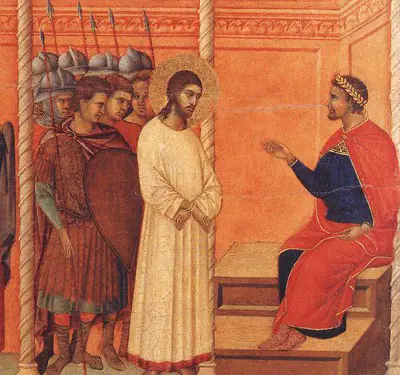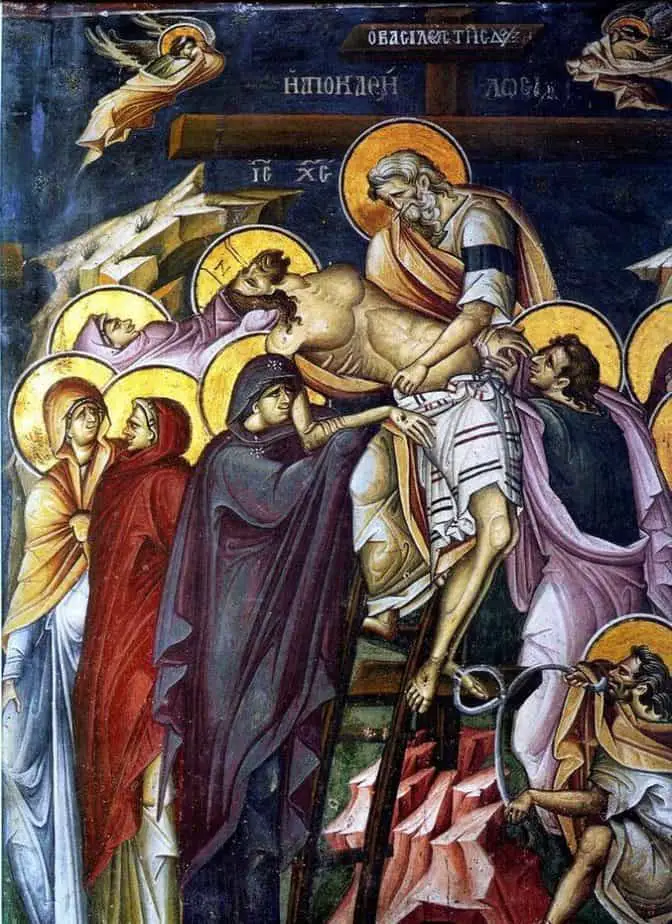At that time Joseph of Arimathea, an honourable counsellor, which also waited for the Kingdom of God, came, and went in boldly unto Pilate, and craved the body of Jesus. There was another great man who had come from Arimathea, or Ramathain, on Mount Ephrem: the Prophet Samuel (1 Samuel 1:1 ). This Joseph is mentioned by all four Evangelists, specifically in connection with the dead Lord’s burial. John calls him a disciple of Jesus secretly (19:38); Luke – a good man and a just (23:50), Matthew – a rich man (27:57). (The Evangelist does not call Joseph rich from vanity, to show that the Lord had rich men among His disciples, “but in order to show how it was that he was able to get Jesus’ body from Pilate. To a poor and unknown man, it would not have been possible to penetrate to Pilate, the representative of Roman power.”- Jerome: “Commentary on Matthew“.) He was noble in soul: he feared God and waited for the Kingdom of God. In addition to his outstanding spiritual traits, Joseph was also a rich man of good standing. Mark and Luke call him a counsellor. He was, then, one of the elders of the people, like Nicodemus. Also, like Nicodemus, he was a secret admirer and disciple of the Lord Jesus. But, even though these two men were secret followers of Christ’s teaching, they were nevertheless ready to lay themselves open to danger by standing together with Christ. Nicodemus once asked the embittered Jewish leaders to their faces, when they were seeking an excuse to kill Christ: “Doth our law judge any man before it hear him?” (John 7:51). Joseph of Arimathea laid himself open to even greater danger by taking thought for the Lord’s body when His known disciples had fled and dispersed, and when the Jewish wolves, having killed the Shepherd, could at any moment fall on the sheep. That what Joseph was doing was dangerous is indicated by the Evangelist by the word “boldly”. He needed, then, more than courage; he needed daring to go to Caesar’s representative and ask for the body of a crucified felon. But Joseph, as Nicephorus says, “in his greatness of soul, threw off his fear and shook off all subservience, showing himself to be a disciple of Jesus Christ.”


